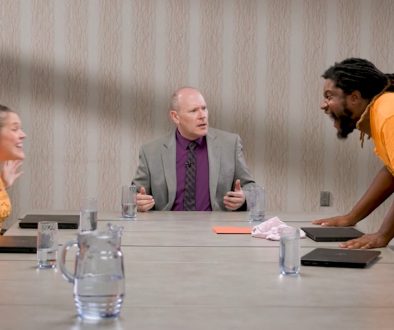How to Find Your Purpose to Be an Effective Leader
“The only way to do great work is to love what you do.” -Steve Jobs
In the fast-paced environment of associations, leaders are forced to move fast and make decisions that could make a lasting impact on their organizations. But without a personal drive, these decisions may be misdirected or unclear. In How Will You Measure Your Life? by Harvard Business Professor Clayton Christensen aims at professionals in the business world who seek a more defined purpose for themselves and their leadership style. The book urges leaders not just to consider the integrity and boldness of their business decisions, but their personal ones as well.
Ewald Consulting Chief Experience Officer Eric Ewald considers Christensen’s novel a great leadership guide and urges other leaders to consider picking it up. “This book is deeply reflective and explores themes of professional and personal integrity. It is a kind of ‘self-help’ book, but it draws wisdom from and creates parallels with the fields of business and economics. It is an interesting read that I have recommended to others.”
The reality is that our personal and professional lives cannot be separate. Diving inward to create change and alter your personal happiness will make you a better, more thoughtful leader.
How do you start to make change? Here are a few ideas and takeaways from How Will You Measure Your Life?:
Practice Integrity. Christensen explains this value in terms of both personal lives and business. He explains that integrity is all about shutting down the idea of “just this once.” While you may think cutting corners just once is okay, you are still telling yourself that one time is okay. This can create a slippery slope such as a young professional Christensen mentions in the book. “Nick Leeson, the 26-year-old trader who famously brought down British merchant bank Barings in 1995 after racking up $1.3 billion in trading losses before being detected, suffered exactly this fate and talks about how marginal thinking led him down an inconceivable path. In hindsight, it all started with one small step: a relatively small error. But he didn’t want to admit to it. Instead, he covered it up by hiding the loss in a little-scrutinized trading account. It led him deeper and deeper down a path of deception.” Christensen states, “100% of the time is easier than 98% of the time.” Don’t cheat yourself and don’t cheat your organization. Practice integrity in order to practice and stay true to who you are on a personal and professional level.
Do not just focus on marginal costs. Think bigger. Sometimes, big changes are needed. Christensen gives the example of Blockbuster’s response to the emergence of their competitor, Netflix. Blockbuster saw the demand for DVD mailing early on, but decided they could not sink too much of their existing sales force into a project that could have seen Netflix overturned. In the eyes of Christensen, this led them to declare bankruptcy in 2010. “Blockbuster’s mistake? To follow a principle that is taught in every fundamental course in finance and economics. That is, in evaluating alternative investments, we should ignore sunk and fixed costs, and instead base decisions on the marginal costs and revenues that each alternative entails. But it’s a dangerous way of thinking.” Blockbuster’s thinking was not future-focused. They leaned on the old ways of doing business, and it cost them. This is important to remember for your work life and beyond. For example, if you find yourself away from your family too much, a simple dinner will not make feelings of neglect go away. You need to shift fully and put in consistent effort to make real change.
Be intentional. It isn’t always easy, but if you can work a little bit every day to protect your values and the things that make you the happiest (such as hobbies, family, and friends), you will walk into meetings every day as a better, brighter leader. As Christensen puts it, “if the decisions you make about where you invest your blood, sweat, and tears are not consistent with the person you aspire to be, you’ll never become that person.” You have the power to become the person you want to be, you just need to determine where you invest your energy.
To recap, being a better you takes effort, but it should make you feel good if you are doing it properly. At Ewald, our client teams value the coaching relationships they have with our association leaders: we encourage them to follow their moral compasses while also trying to be as efficient as possible. It’s not easy, but if you take stock of what matters to you and what traits you’d like to adopt in your personal and professional life, you will find those things in abundance.
To learn more from Clayton Christensen, you can find his book here.




